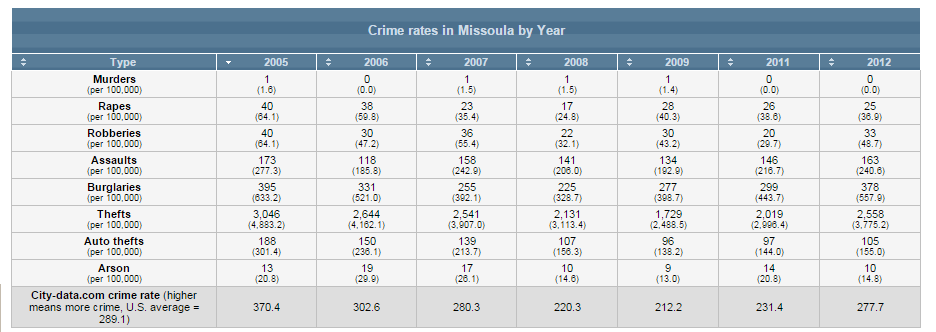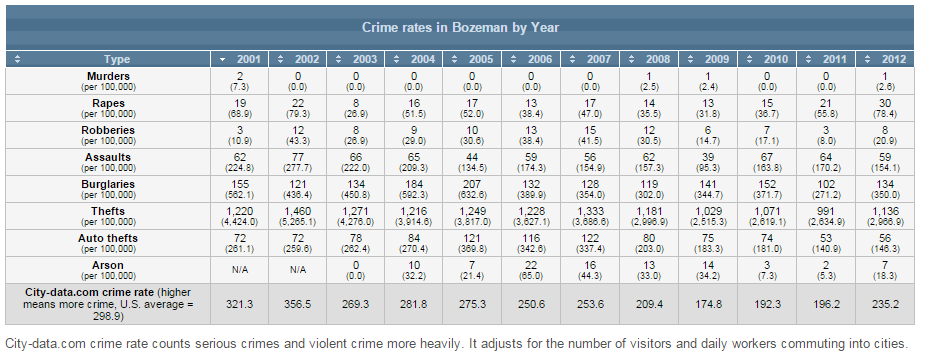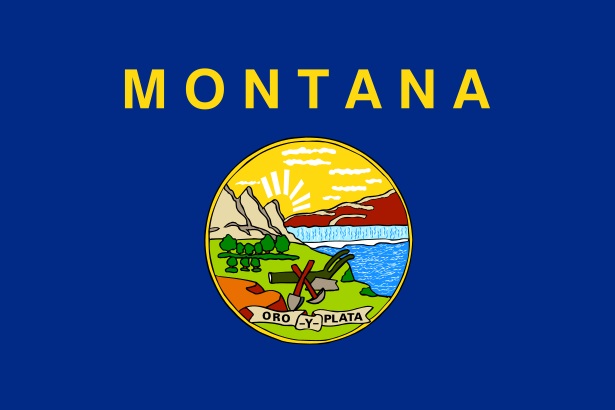
It was reported by the Missoulian just this afternoon, and one of the things I immediately thought of were the new alcohol tests that UM students are supposed to take, and which I wrote about in August. Are they working?
The next thing I thought about was Bozeman. I don’t read the Bozeman papers that much, but I just don’t hear about rapes happening there as much as here in Missoula.
Why is that?
I decided to look up some crime statistics for the two major university towns of Montana to see if we could learn anything. Here they are, from the Missoula and Bozeman City Data Pages:
Alright, let’s start with Missoula first. Here are some things that stand out to me:
- Missoula had 25 rapes in 2012, which was down from the previous two years’ numbers of 28 and 26.
- There’s only been one year when Missoula has not had at least 20 rapes, and that was 2008. Additionally, there’s been two years where rapes are over 30 a year.
- Missoula is actually improving, however sad it may sound, although not nearly as ‘much’ as we did in 2008.
So let’s take a look at Bozeman now:
- Rapes in Bozeman have doubled since 2009. That year there were 13 and in 2012 there were 30;
- All but two years have double-digit figures for rapes in Bozeman;
- 2003 had just 8 rapes, is there something we can learn from that year?
Yeah, just 8 rapes doesn’t sound like much of a success, and it’s not, but compared to the 30 in 2012, it’s something to strive for…however terrible that may sound.
Now let’s compare Missoula and Bozeman and see if we can learn anything:
- Bozeman has, on average, half the rape cases each year that Missoula does;
- Bozeman’s highest number for rapes in one year was 30, which is really just about where the average is for Missoula;
- So we’ve got a situation where Bozeman’s outlier years are just business as usual here in Missoula.
Gosh, something needs to be done about this. I know that Missoula and Bozeman aren’t that different, aren’t that far apart, and don’t have a wildly out of touch student body compared to the rest of the state. So what’s the problem?
I don't know.
I hope this short article gave you a new perspective on it, at least, and maybe where the answer may lie.









